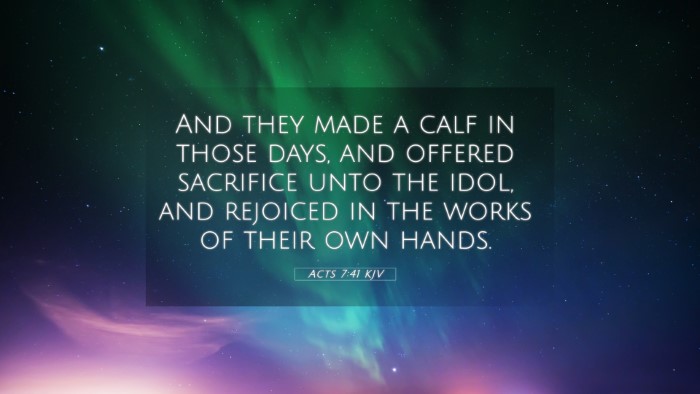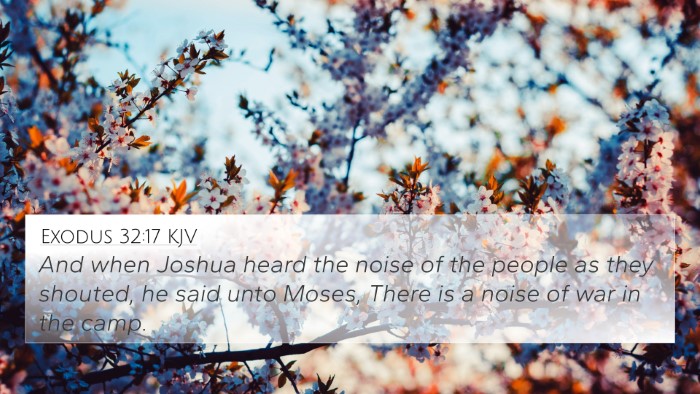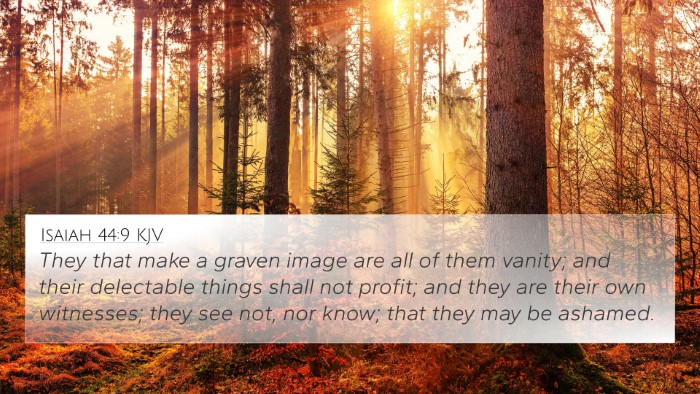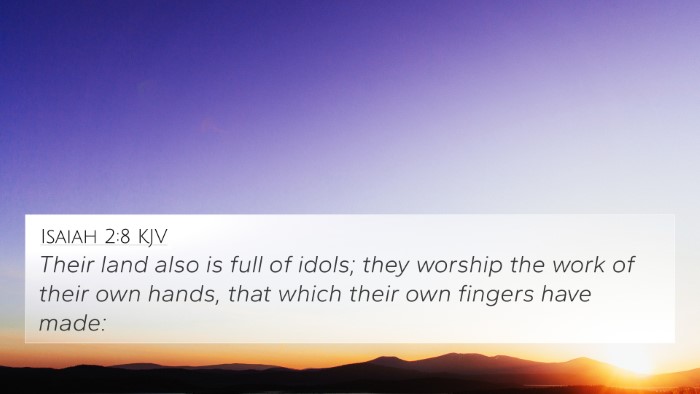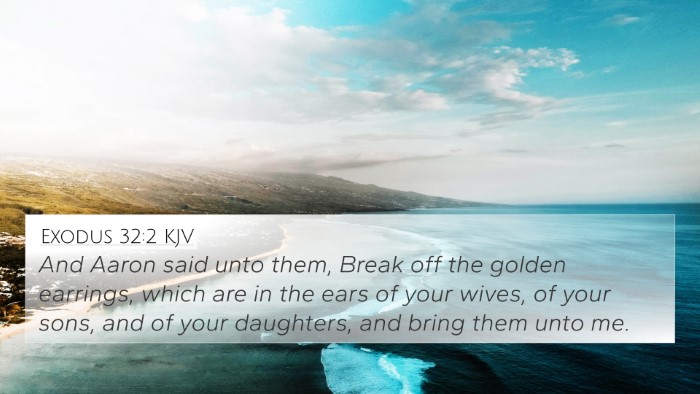Understanding Acts 7:41
Acts 7:41 states:
"And they made a calf in those days, and offered sacrifice unto the idol, and rejoiced in the works of their own hands."
This verse recounts an important moment from Israel's history, emphasizing the dire consequences of idolatry in the face of God's deliverance. Below is a comprehensive summary of the meanings and interpretations of this verse, drawn from various public domain commentaries including those of Matthew Henry, Albert Barnes, and Adam Clarke.
Summary of Insights
The context of Acts 7:41 occurs during Stephen's speech, wherein he recalls the Israelites' rebellion against God shortly after their miraculous exodus from Egypt. Here are the deeply insightful aspects drawn from the commentaries:
- Idolatry: Stephen highlights a pivotal failure of the Israelites—their propensity to create and worship a golden calf. This act showcases the ease with which people can turn from God, even after witnessing His miraculous works.
- Rebellion Against God: The act of making the calf symbolizes a total rejection of God's sovereignty and a desire to revert to familiar, tangible forms of worship from their days in Egypt.
- Human Ingenuity versus Divine Will: The phrase "rejoiced in the works of their own hands" signifies the downfall of the people as they idolized their creations rather than glorifying the Creator.
- Historical Warning: Stephen's recounting is a warning for the early church, as it underscores the dangers of straying from pure worship and the consequences of chasing after man-made idols.
- God's Response: The commentaries emphasize that God reveals His disappointment over such actions, which prompts significant judgment and serves as a lesson on the importance of remaining faithful.
- Connection to Modern Idolatry: These insights are not just historical; they resonate with contemporary issues where people may idolize materialism, technology, or even ideologies above God.
- Theological Implications: The verse invites reflection on themes of grace and judgment. It leads believers to ponder their own allegiances and potential idols in the modern context.
Bible Cross-References
Acts 7:41 relates to several other scriptures that bolster its message about idolatry and God's sovereignty:
- Exodus 32:4-5: This passage details the actual event of the Israelites creating the golden calf.
- Psalm 106:19-20: The psalm reflects on Israel’s history of idolatry, echoing the themes of Stephen's address.
- 1 Corinthians 10:7: Paul warns the Corinthian church not to engage in idolatry, referencing the same events.
- Isaiah 46:7: This verse critiques those who carry their idols, underlining the futility of worshiping created things.
- Romans 1:23: Paul speaks of humanity’s exchange of the glory of the immortal God for images resembling mortal man.
- 1 John 5:21: John warns believers to keep themselves from idols, linking back to the overarching theme of devotion.
- Galatians 4:8: Paul discusses returning to en slavery to weak and worthless elemental things, akin to the idolatry of old.
Thematic Connections
The themes in Acts 7:41 resonate across the scriptures, making it pivotal for understanding God's continuous message about fidelity:
- The Consequences of Idolatry: Across many texts, God’s displeasure with idolatrous practices is highlighted, serving as a cautionary tale.
- Grace and Redemption: Despite failures, the constant theme of God's mercy and redemption invites backsliders to return.
- Worship in Spirit and Truth: True worship is contrasted with false, materialistic idol worship, framing the conversations throughout both Testaments.
Application for Today
In contemplating Acts 7:41, modern believers can reflect on how this verse informs their understanding of faith and loyalty. Consider these points:
- Examine personal values and identify any potential idols.
- Reflect on how materialism or other distractions can detract from one's relationship with God.
- Engage with the historical narrative to understand God's unchanging nature amidst human failure.
Conclusion
Acts 7:41 serves as a powerful reminder of the historical struggles faced by God's people and the timeless truths surrounding worship, idolatry, and redemption. By cross-referencing and studying these connections among scriptures, believers can deepen their understanding of faith and maintain focus on their Creator amidst a culture that often promotes distractions. This reflective journey not only strengthens individual faith but also enhances the collective understanding of God’s continuous narrative throughout the Bible.

